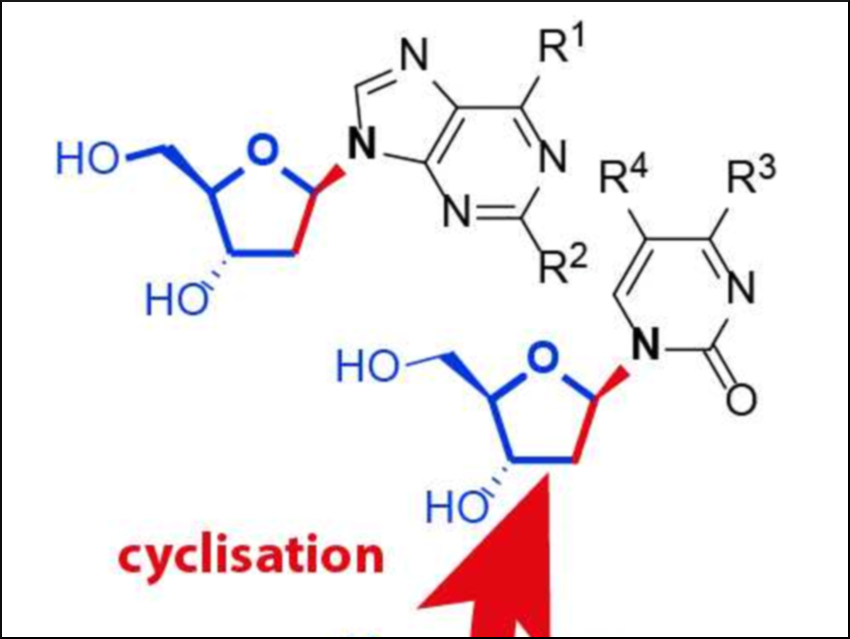It is generally assumed that RNA plays a key role in the origin of life. The transition to the more complex but more stable DNA is thought to require enzymatic assistance. A ribonucleotide reductase would be needed to obtain the deoxyribonucleotides from ribonucleotides.
In contrast to this prevalent theory, Oliver Trapp, Ludwig-Maximilians-University LUM), Munich, and Max Planck Institute (MPI) for Astronomy, Heidelberg, Germany, and colleagues have found a possible path to DNA nucleosides starting from simple, prebiotically available molecules. The team observed that purine and pyrimidine nucleobases can be turned into their vinyl derivatives by a condensation with acetaldehyde. These vinyl derivatives then undergo stereoselective reactions with D-glyceraldehyde or formaldehyde to give β-deoxyribonucleosides—the compounds comprised of a sugar and a nucleobase that are found in DNA. All of these reactants would have been available under prebiotic conditions.
The formation of β-deoxyribonucleosides was verified by high-performance liquid chromatography (HPLC) followed by UV detection and by high-resolution mass spectrometry (HR-MS). These results provide a rational mechanism for the formation of β-deoxyribonucleosides from all naturally occurring nucleobases. The reaction proceeds under mild conditions in water. Based on these results, DNA might have evolved much earlier than previously proposed.
- Direct Prebiotic Pathway to DNA Nucleosides,
Oliver Trapp, Jennifer Teichert, Florian Kruse,
Angew. Chem. Int. Ed. 2019.
https://doi.org/10.1002/anie.201903400




